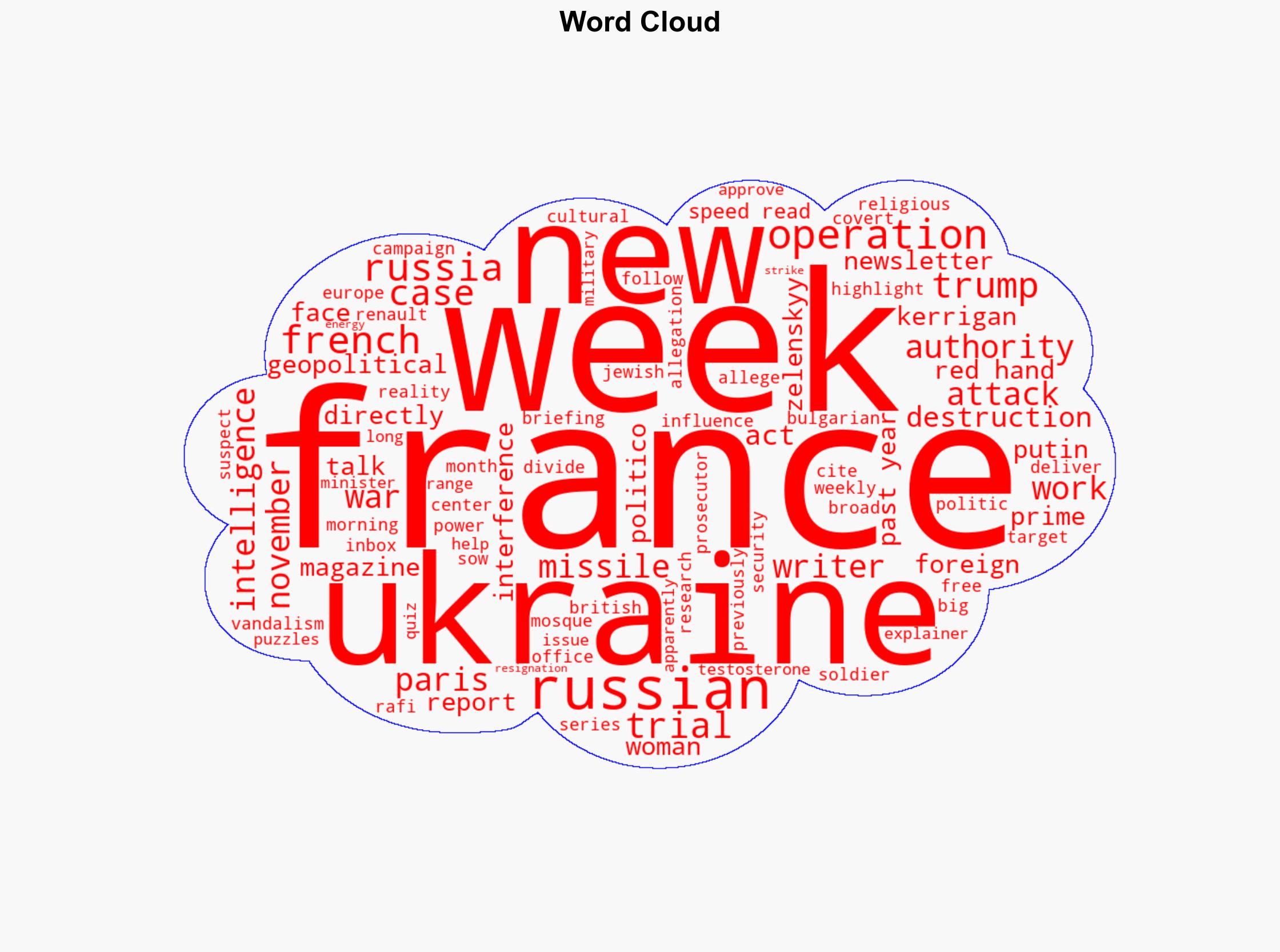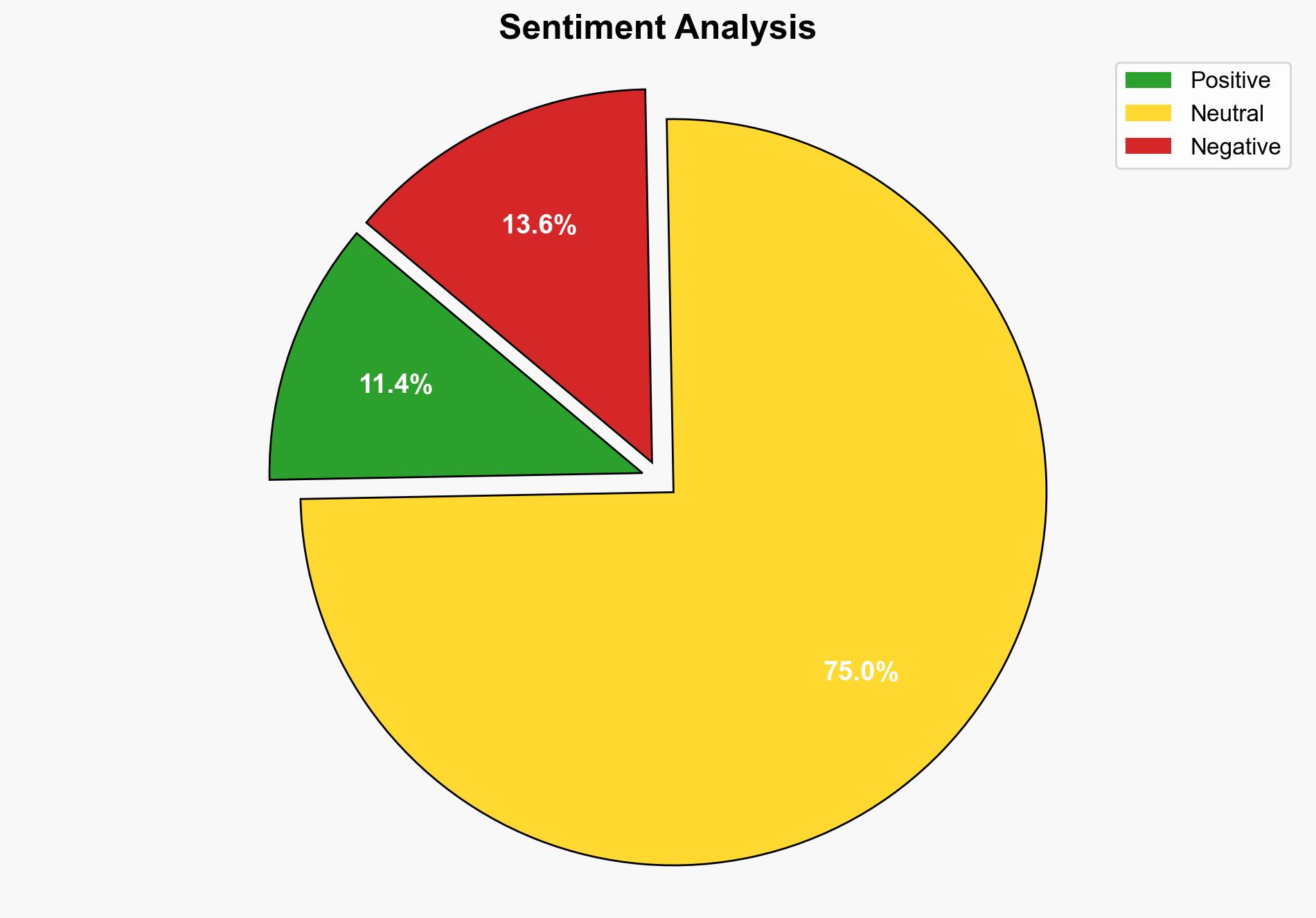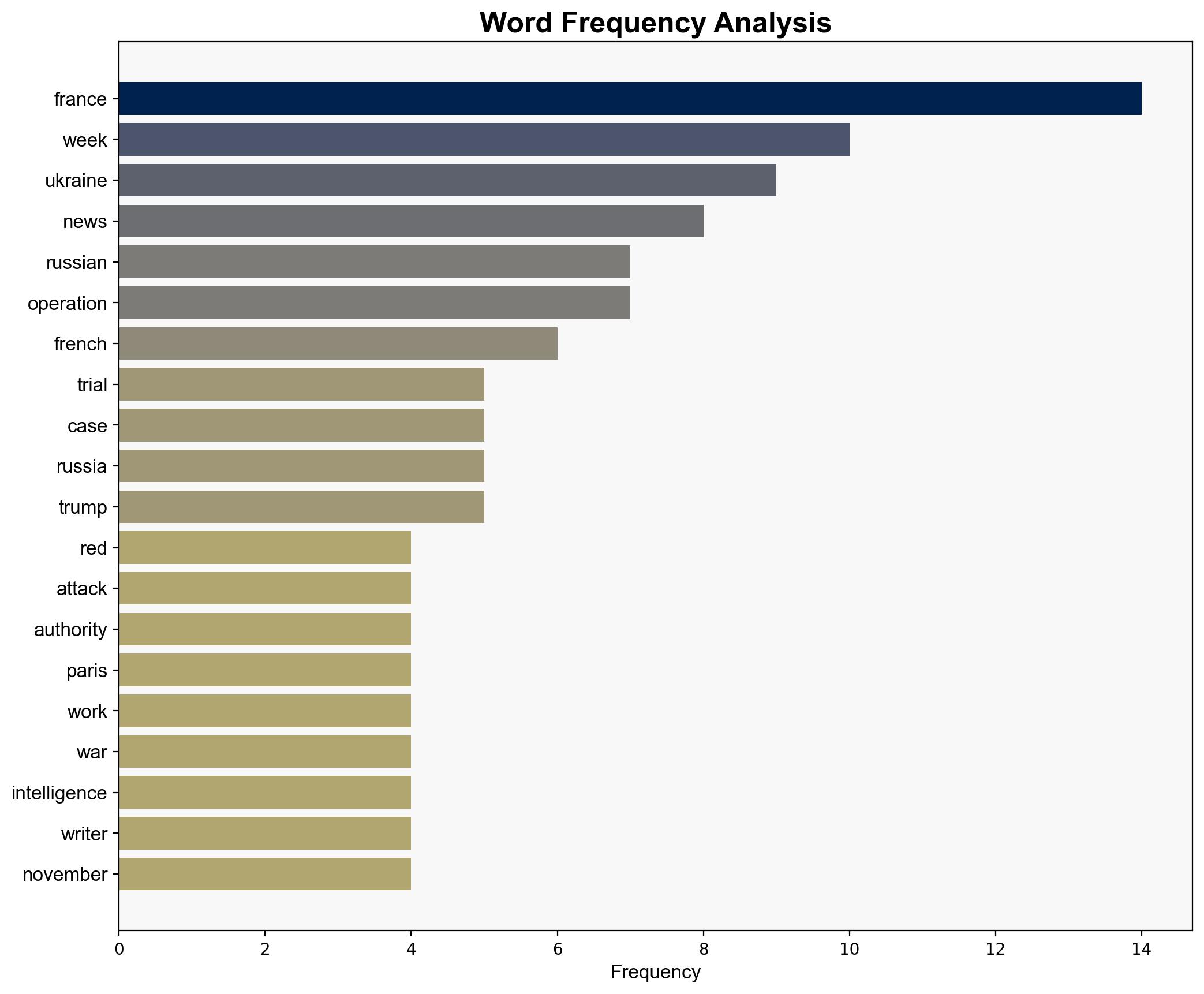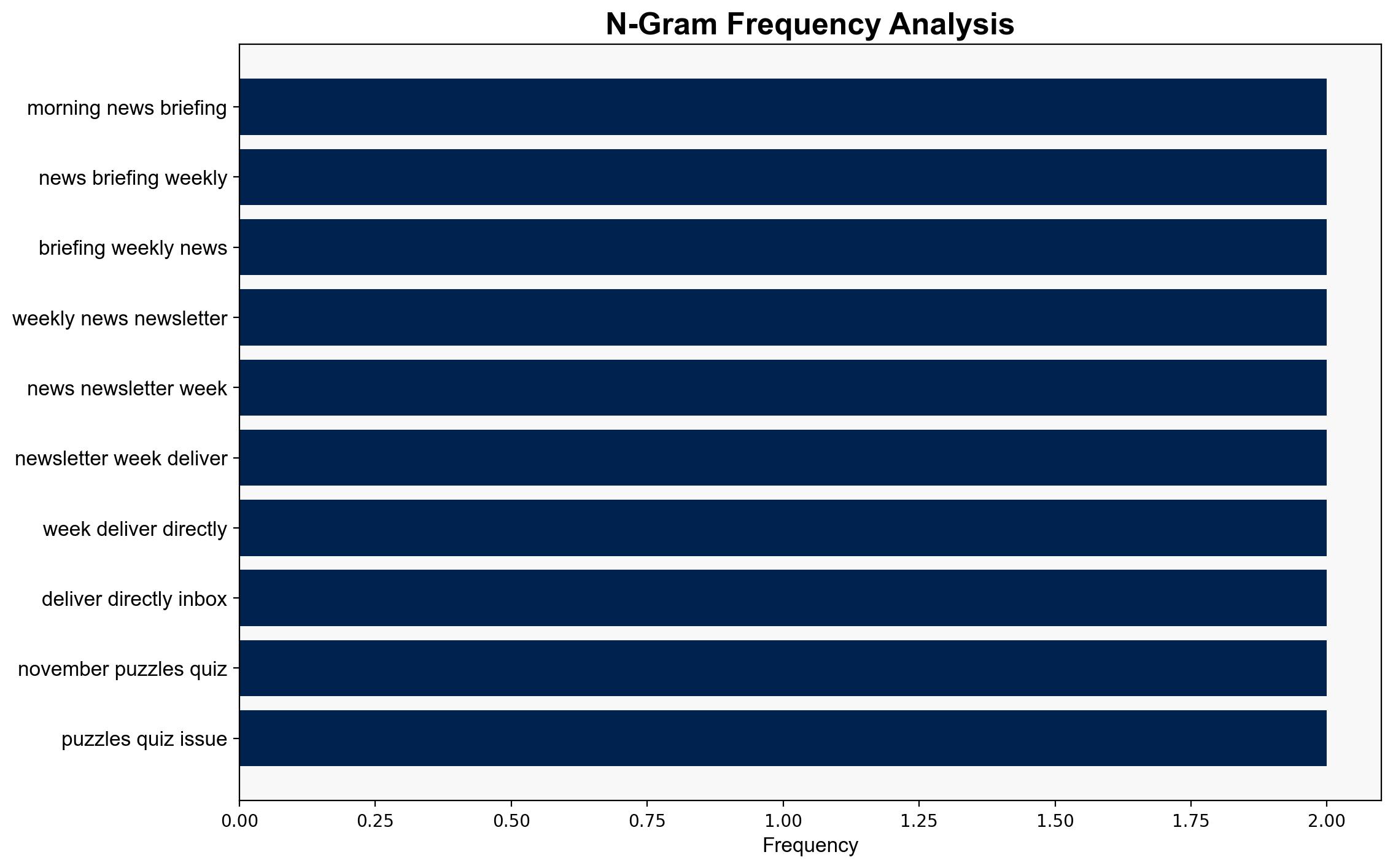Frances red hands trial highlights alleged Russian disruption operations – The Week Magazine
Published on: 2025-10-30
Intelligence Report: Frances red hands trial highlights alleged Russian disruption operations – The Week Magazine
1. BLUF (Bottom Line Up Front)
The most supported hypothesis is that Russia is conducting covert operations to destabilize France and sow discord within Europe. This assessment is based on the structured analysis of patterns of vandalism and the involvement of foreign nationals linked to Russian interests. Confidence level: Moderate. Recommended action: Enhance intelligence-sharing among European nations and strengthen counterintelligence measures.
2. Competing Hypotheses
1. **Hypothesis A:** Russia is actively conducting a covert campaign to destabilize France through psychological operations and proxy actors, aiming to weaken European unity during the Russo-Ukrainian conflict.
2. **Hypothesis B:** The acts of vandalism and disruption are primarily the result of independent extremist groups within Europe, with only tangential or opportunistic Russian involvement.
Using Analysis of Competing Hypotheses (ACH 2.0), Hypothesis A is better supported due to the consistent pattern of actions aligning with Russian strategic interests and the involvement of individuals with ties to Eastern Europe, suggesting coordination rather than isolated incidents.
3. Key Assumptions and Red Flags
– **Assumptions:** Hypothesis A assumes a high level of coordination and intent from Russian entities, while Hypothesis B assumes local actors are primarily responsible.
– **Red Flags:** The reliance on intelligence reports attributing actions to Russia without direct evidence could indicate potential bias or misinformation. The absence of direct links between the accused individuals and Russian intelligence services is a critical gap.
4. Implications and Strategic Risks
– **Patterns:** The repeated targeting of religious and cultural sites suggests a strategy to inflame social tensions.
– **Cascading Threats:** Successful destabilization could embolden further operations across Europe, impacting economic stability and political cohesion.
– **Potential Escalation:** If Russian involvement is confirmed, it could lead to heightened tensions and retaliatory measures by European states.
5. Recommendations and Outlook
- Enhance intelligence-sharing frameworks within the EU to better track and counteract foreign interference.
- Strengthen cybersecurity and counterintelligence capabilities to detect and disrupt covert operations.
- Scenario Projections:
- **Best Case:** Improved European unity and resilience against foreign interference.
- **Worst Case:** Escalation of covert operations leading to significant social unrest and political instability.
- **Most Likely:** Continued low-level disruptions with intermittent successes in counterintelligence efforts.
6. Key Individuals and Entities
– **Clement Renault:** French security researcher involved in the case analysis.
– **Kevin Limoni:** Deputy director at Paris Geode, providing geopolitical insights.
– **Antonia Kerrigan:** Reporter covering the trial and related incidents.
7. Thematic Tags
national security threats, cybersecurity, counter-terrorism, regional focus




